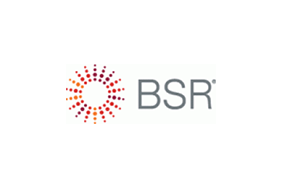BSR Shapes Value Chain Strategies at World Business Summit on Climate Change in Copenhagen
Published 05-27-09
Submitted by BSR
San Francisco, CA - May 27, 2009 - As the world prepares for international climate change negotiations in Copenhagen this December, Business for Social Responsibility (BSR) is helping shape the business agenda on reducing the carbon footprint of all industry sectors.
"Just as labor conditions in supply chains were dominant corporate responsibility issues in the 1990s, decarbonizing all elements of complex value chains will be a defining feature of the sustainability debate as the first decade of the 21st century draws to a close," said BSR's President and CEO Aron Cramer, who led a workshop on decarbonizing value chains at the World Business Summit on Climate Change in Copenhagen earlier this week. "There is a great opportunity to leverage value chain relationships to identify innovative climate change solutions."
Cramer and the speakers BSR brought together for the workshop-including Unilever CEO Paul Polman, U.K. Minister Gareth Thomas, SAP Chief Sustainability Office Peter Graf, and Maersk Line COO Morten Engelstoft-outlined four steps global companies should take to help build a low-carbon economy:
- Remake procurement strategies.
- Rethink relationships embedded in value chains.
- Create technological innovations.
- Engage policymakers and consumers.
In addition to focusing on the carbon impacts in value chains, BSR has been collaborating with its global network of more than 250 member companies on climate issues in working groups such as Clean Cargo and Beyond Monitoring, in heat-mapping projects that are identifying carbon "hot spots" in value and supply chains, and through other projects such as workshops at multi-stakeholder events like the World Business Summit on Climate Change.
For more of BSR's recommendations on the business approach to a low-carbon economy, read the BSR background briefing for the Copenhagen summit at www.bsr.org/reports/BSR_WBSCC_Backgrounder.pdf.
About BSR
A leader in corporate responsibility since 1992, Business for Social Responsibility (BSR) works with its global network of more than 250 member companies to develop sustainable business strategies and solutions through consulting, research, and cross-sector collaboration. With six offices in Asia, Europe, and North America, BSR uses its expertise in environment, human rights, economic development, and governance and accountability to guide global companies toward creating a just and sustainable world. Visit www.bsr.org for more information.

BSR
BSR
Since 1992, Business for Social Responsibility (BSR) has been providing socially responsible business solutions to many of the world's leading corporations. Headquartered in San Francisco, with offices in Europe and China, BSR is a nonprofit business association that serves its 250 member companies and other Global 1000 enterprises. Through advisory services, convenings and research, BSR works with corporations and concerned stakeholders of all types to create a more just and sustainable global economy. For more information, visit www.bsr.org.
More from BSR

